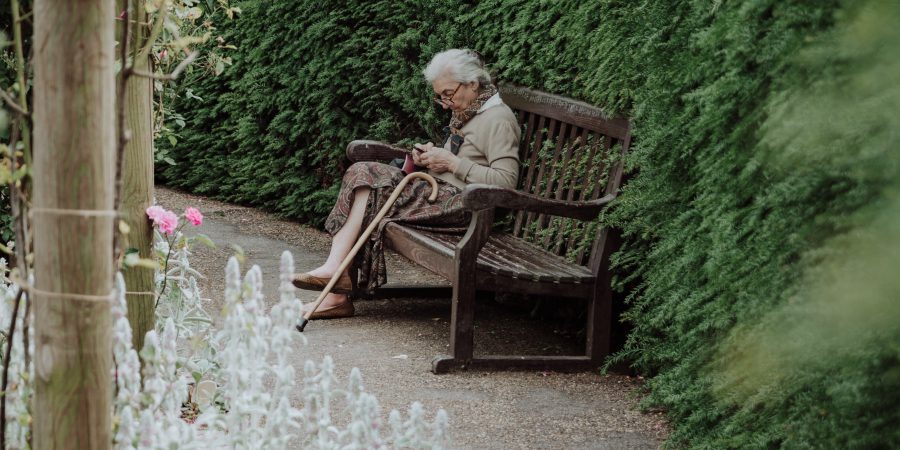Whether you are a grandparent or you have a grandparent, this blog post will arm you with important information about how to protect you or your loved ones from the “grandparent scam”.
How does this scam work?
You’ll receive a call from someone claiming to be your grandchild in severe financial trouble. Typically, the scammer tells you they need emergency funds to pay for medical bills, travel out of a foreign country or bail. The “grandchild” pleads for you to not tell other relatives because they’re embarrassed or scared. Wanting to help, you send money via wire transfer to the scammer.
These scammers are good at convincing you that they really are your grandchild. They provide convincing details, such as family names and school details (which they may have sourced through social media), while other times they rely on you to share that sensitive information:
“Grandpa? Do you know who this is?”
“John, is that you?”
“Yes!”
This scam can also work in reverse, where the “grandparent” calls their grandchild pleading for help.
Tips to avoid being a target of the grandparent scam:
- Resist the urge to act immediately, no matter how dramatic the story is.
- Ask hard-to-answer questions. Does the caller know the name of your dog? How about his/her mom’s birthday? Be cautious if the person avoids the questions or changes the subject. Be cautious about sharing personal information over the phone.
- Independently verify the call. Contact a friend, another family member or your grandchild to assess and verify the situation (use a known telephone number, not the one provided by the caller). Does it make sense? Is your grandchild actually in the hospital/out of country/in jail? Never send money unless you’re 100% confident about the recipient.
- Know what your family members are sharing online. You may not have control over your family’s social media accounts, but familiarize yourself with what they are sharing online, so you’re aware of what information may be available publicly.
- Share information about this scam. The more people that know about this scam, the fewer people will become victims. Share details about this scam with your friends and family members, especially ones that are grandparents.
If you’ve been a victim of this scam, report it to your local police and to the Canadian Anti-Fraud Centre.
About Consumer Protection BC
We are responsible for regulating specific sectors and certain consumer transactions in British Columbia. If your concern is captured under the laws we enforce, we will use the tools at our disposal to assist you. If we can’t help you directly, we will be happy to provide you with as much information as possible. Depending on your concern, another organization may be the ones to speak to; other times, court or legal assistance may be the best option. Explore our website at www.consumerprotectionbc.ca.
ADDITIONAL READING:
Caution your loved ones about the “hang-up delay” scam
The top 5 red flags of romance scams
How to spot scam texts like a pro (with examples)
How to spot and avoid fake online businesses



I think that the worst scammers of the seniors are charities. I know they are legal but they play on the emotions of the elderly and keep going after their money till they have none left. Is not this as bad a scam?
Your tips only work for us “young” grandparents who still have full cognition. We are the ones who are least likely to fall for this scam. How can we protect those who really need protection?
Hi Joy, thanks for your feedback. We think that awareness is a powerful tool and that having conversations with family members is a good place to start. Beyond that, we can’t tell families how best to support their loved ones who are non-cognitive – I think that is up to each individual family to support and protect their loved ones in the way that right for them. If you’re interested, the RCMP have some information about the use of Power of Attorney, where seniors can empower a person of their choice to act on their behalf for financial or personal care decisions: http://www.rcmp-grc.gc.ca/en/seniors-guidebook-safety-and-security#a9. I hope this helps!
I got a grandparent phone call. A young guy saying “Hi Grandma, please help me I am in Jail in Costa Rica. I need some money or they will keep me here” I said “Is this Jared?) he said “Yeah, Grandma this is Jared” I talked to him for quite a while. as though he was my Grandson, then I shouted into the phone. “You should stay in Jail, I don’t have a grandson named Jared”
Hi Anne! Good for you for knowing better! He must have been shocked to hear that!
I would like to offer informations/workshop for the small community I live in.
Could you get me some flyers, pamphlets, things to do or no to do.
More examples as well and what recouses do people have after being scammed.
There is no hope for them to recuperate some of their monies or is there???
Thank you.
Hi Annie, it’s great that you would like to share knowledge with your community! I will send you an email with more information but I think our blog posts (like the article you found here) are the best resources to share. Please stay tuned for an email from us.